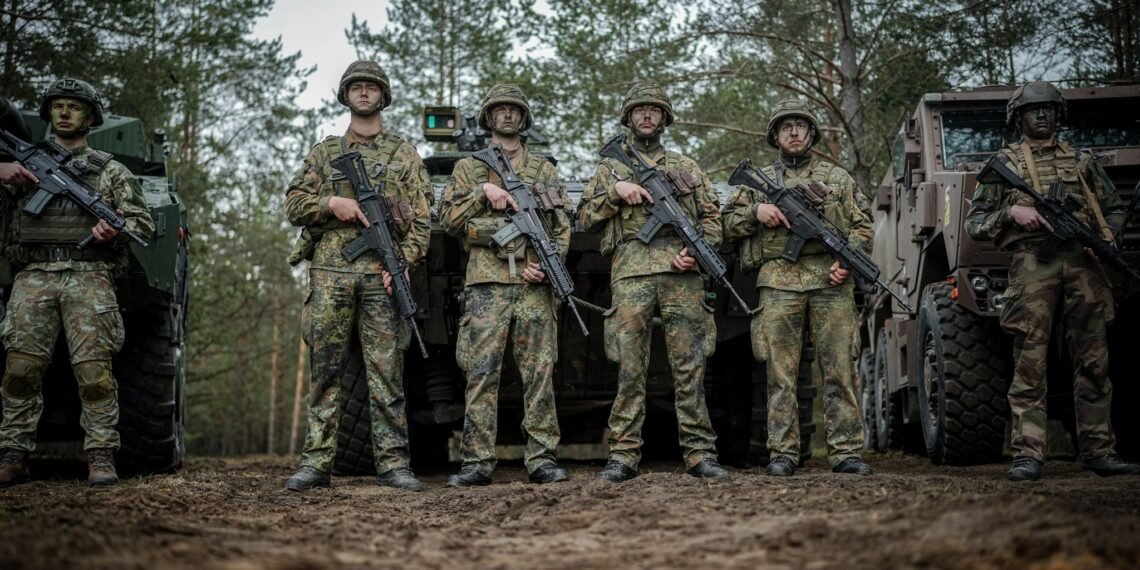Commander of the German Army brigade to be stationed in Lithuania has said that plans for the large-scale troop deployment are progressing well.
The future commander of the Bundeswehr combat unit in Lithuania, Brigadier-General Christoph Huber, told the German News Service’s dpa that he wants to prepare his soldiers for their special role on the North Atlantic Treaty Organisation’s (NATO) eastern flank from the outset.
Huber, whose first moves as commander of the Lithuania Brigade was to schedule joint sports and marches for the soldiers, said: “Small details matter, such as the physical fitness of the troops. Small things, but in the end they should help to make it clear to all of us that we have a very special mission here.”
A report by the German News Service (delivered by dpa) also indicates that the stationing of the brigade, which is to be combat-ready and capable of independent action by 2027, is a response to the changed security situation in Eastern Europe following Russia’s aggression in Ukraine.
The plan is for a permanent presence of up to 5,000 men and women, 3,000 of whom will be based at the planned main location in a coniferous forest south of Vilnius, close to the border with Russia’s close ally Belarus.
Huber says the construction plans are on the right track, adding: “The speed at which the necessary infrastructure is being established is impressive.”
Construction vehicles and excavators are now rolling on the access roads to the future barracks site, and the area is being leveled and prepared for the construction work.
“We are talking about building a small town from scratch. One thing must be clear: we cannot relocate our formations and units if accommodation is not guaranteed,” Huber said.
Meanwhile, co-leader of Germany’s hard-left Die Linke (The Left) has spoken out against closer ties between NATO and Ukraine and the supply of more arms to Kiev’s armed forces.
During a recent trip to Ukraine, Jan van Aken told the German News Service’s dpa that he thought it would be “a mistake to say that the only way we can be sure of security is to be in NATO,” adding: “We should first try all the other options between simply supplying weapons and doing nothing.”
Read Also: Lafarge Africa’s profit soars by 53% in 2024, driven by innovation, green growth initiatives
As one option, he mentioned imposing tougher sanctions against the Kremlin, highlighting the oil tankers used by Russia for oil exports.
He said he found it “incomprehensible” that the German coast guard “turns a blind eye when several million United States (U.S.) dollars’ worth of oil passes by every day. Putting oil tankers “on a leash” would cause “enormous pressure.”
The pressure on Russia could also be increased by China, which describes itself as neutral in the war.
“China made another offer to the West in March-along with Brazil,” he said, insisting that Germany and Europe should respond to this and enable the start of peace negotiations.
In his view, it is important for an end to the war not just to sign a peace treaty, but for Ukraine to also receive material security guarantees, which could come from Europe.
“But a material security guarantee could also be a ceasefire line with Chinese and US soldiers walking around as blue helmets,” he said as an example. It was the first visit by the left-wing politician to Ukraine since the Russian invasion in February 2022.






